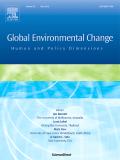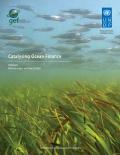The United States, Europe, and non-governmental international organizations are seeking to encourage the creation of green jobs and the use of non-hydropower renewable energy. This paper discusses the challenge in defining green jobs and reviews definitions across different countries, states, and NGOs. The paper describes some of the costs the United States has faced in creating jobs through programs funded by the Departments of Labor and Energy. The paper concludes by comparing the experiences of China and the United States in the use of renewable energy.
This article appeared in the Energy Economics Supplemental Issue: Green Perspectives.

The rhetorical zeal for green enterprise as a global fix for the tripartite challenges of economic recession, environmental degradation and social inequality is increasingly visible in state and non-state pronouncements around the globe under the banner of ‘The Green Economy’. In particular, many policy-facing statements call for transitions leading to a transformation in development practices. Yet there is little detail either in policy or research regarding the types of transitions needed and how they are to be initiated, nor agreement about what a transformed economy might look like. Despite this, there are emergent activities within the cleantech arena which are being heralded as actually existing examples of green economy activities. One means through which these activities are seeking to exert influence over development trajectories is by clustering both at the subnational and transnational level. While diverse in formation, many of these clusters are hybridised, involving actors from public, private and civil society sectors.
One main theme in the Rio+20 Conference was how to facilitate the growth of green industries. How can politicians more specifically promote renewable green industries such as wind turbines or solar energy? How can we get prices right in the market? Prices can be adjusted by the use of economic instruments such as taxes and subsidies. In this way, renewable energy sources and green industries become more competitive, thus enhancing the transition from brown to green economy. Not only can these economic incentives accelerate the so-called switch point in time from fossil fuel–based energy sources to those not based on fossil fuel, they also encourage innovation. An illustrative example of this logic in practice is the case of Danish wind energy production.
This issue of the International Journal of Labour Research focuses on the question of whether the jobs that are emerging in the efforts to reach sustainable development can be described as “decent”. A series of case studies is presented which demonstrates that this seems to be far from the case. While these results remain very partial, this should be seen as an important reminder that “green” employment is not decent by definition and that like in any other sector, green jobs require careful stewardship from public authorities to ensure that workers are able to exercise their rights. This is all the more the case given the central role government policy plays in creating the enabling conditions for these industries to emerge and thrive.
This journal issue includes case studies on Korea, China and South Africa.

